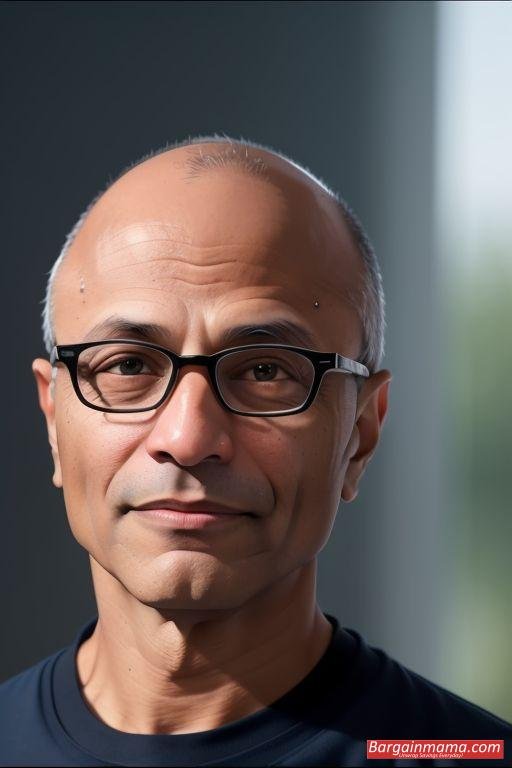Tuesday at 12 p.m. ET marked the start of the yearly Microsoft Build developer conference. CEO Satya Nadella gave enthralling updates on Microsoft’s most recent generative AI initiatives, including Copilot. The occasion demonstrated Microsoft’s ongoing dedication to incorporating AI into their hardware and software offerings, laying the groundwork for technological advancements in the future.
Copilot Seizes the Main Event
The highlight of the event was Microsoft’s AI helper, Copilot. Copilot, which is intimately integrated with Microsoft 365, seeks to transform user interfaces with software by offering intelligent support for a variety of apps. Microsoft’s advantage in the AI race was demonstrated by Copilot’s new features and capabilities, which competed with Google’s Gemini AI for Google Workspace.
Microsoft unveiled its new Copilot+ PC portfolio on Monday, which includes AI-enabled gadgets like the Surface Pro and Surface Laptop. These computers are made to fully utilize AI, which increases the effectiveness and intuitiveness of routine work.

Improvements and Additions
Microsoft demonstrated how Copilot is revolutionizing the user experience during the keynote. The Copilot+ PCs, according to Corporate Vice President of Windows + Devices Pavan Davuluri, “redefine what you can do on a PC and set the direction for the next decade of Windows.” These PCs provide remarkably better performance and efficiency thanks to their AI chips and CPUs.
Copilot extensions were shown by Jeff Teper, President of Collaborative Apps and Platforms. With the help of these extensions, users may go deeper into discussions, find important information fast, and work more efficiently. The demonstration of Copilot’s integration with Microsoft Teams and Sharepoint emphasized the easy exchange of information and cooperation.
Copilot Team
Team Copilot was among the most eagerly awaited features to be released. Beyond personal usage, this AI helper develops into a useful team player in project management. It can take notes, manage agendas, and lead meetings, keeping teams productive and well-organized. Later this year, the feature will be available in preview, and it promises to revolutionize processes for collaboration.
Applications in the Real World
Nadella also emphasized the practical uses of Copilot. Lumen, for example, a business utilizing Copilot for Microsoft 365, has had a forty percent rise in outbound calls, cutting down on operations that used to take hours to only a few minutes. This increase in efficiency highlights Copilot’s ability to increase corporate productivity.
GitHub Copilot
Nadella unveiled GitHub Copilot, a tool that helps developers by suggesting code and assisting with workflow maintenance. GitHub Copilot’s adaptability and usefulness in a variety of coding settings were demonstrated in a live demo by its capacity to produce Java code in Spanish.
Microsoft Real-Time Intelligence and Fabric
The addition of real-time intelligence to Microsoft Fabric, the company’s AI data analytics platform, was another noteworthy development. Nadella mentioned that Microsoft Fabric, which now provides immediate actionable insights on streaming data, is used by more than 11,000 businesses. It is anticipated that this capability would improve industry-wide data-driven decision-making.
Collaborations in Education
Microsoft’s announcement of a collaboration with Khan Academy demonstrated the company’s dedication to education. Khan Academy leverages Microsoft’s Phi-3 tiny language models to provide more accessible math education. All US instructors will have free access to Khanmigo, an AI helper that has the potential to completely change the way students learn.
Collaboration Between OpenAI and Azure AI
Nadella highlighted the “new Bing” search product’s strategic cooperation with OpenAI. Given that GPT-4o is now widely accessible on Azure AI, Microsoft is still at the forefront of AI development. The GPT-4o integration with Azure AI demonstrates the breadth of Microsoft’s AI infrastructure and its dedication to provide developers and companies access to state-of-the-art AI capabilities.
AI Sustainability and Infrastructure
Another highlight was Microsoft’s AI infrastructure, with Nadella declaring that the company’s data centers will run entirely on renewable energy by 2025. Showcasing Microsoft’s commitment to robust and sustainable AI solutions, the strong relationship with Nvidia for the newest Blackwell AI processors and the growth of Azure AI services to more nations were also presented.
Developer Appreciation
In closing, Nadella expressed gratitude to developers for their contributions to the advancement of AI technology. He commended their creative uses, which are having a big global influence. His gratitude to the developer community emphasized the spirit of cooperation that motivates Microsoft’s AI projects.
The company’s unwavering pursuit of AI integration across all of its products and services was underlined at the Microsoft Build 2024 conference. Microsoft’s announcements established a new standard in the AI space, from the improved capabilities of Copilot and the cutting-edge Copilot+ PCs to the strategic alliances and real-time intelligence in Microsoft Fabric. Microsoft continues to be at the forefront of AI’s transformation of the technology industry, enabling both developers and consumers to do more with smart, user-friendly solutions.



